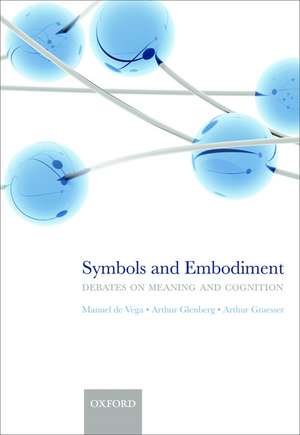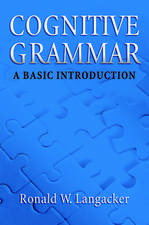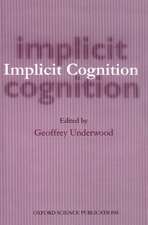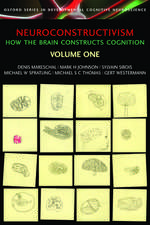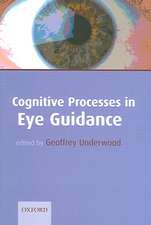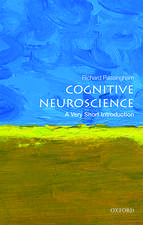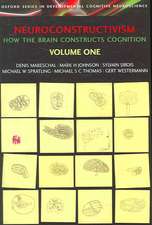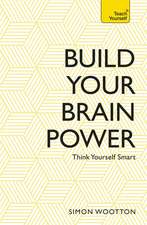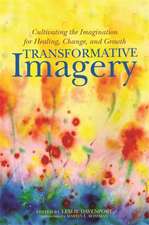Symbols and Embodiment: Debates on meaning and cognition
Editat de Manuel de Vega, Arthur Glenberg, Arthur Graesseren Limba Engleză Hardback – 8 oct 2008
Preț: 403.43 lei
Preț vechi: 579.06 lei
-30% Nou
Puncte Express: 605
Preț estimativ în valută:
77.22€ • 83.91$ • 64.91£
77.22€ • 83.91$ • 64.91£
Carte tipărită la comandă
Livrare economică 09-15 aprilie
Preluare comenzi: 021 569.72.76
Specificații
ISBN-13: 9780199217274
ISBN-10: 0199217270
Pagini: 456
Ilustrații: 60 line illustrations and 9 photos
Dimensiuni: 177 x 253 x 29 mm
Greutate: 0.95 kg
Ediția:New.
Editura: OUP OXFORD
Colecția OUP Oxford
Locul publicării:Oxford, United Kingdom
ISBN-10: 0199217270
Pagini: 456
Ilustrații: 60 line illustrations and 9 photos
Dimensiuni: 177 x 253 x 29 mm
Greutate: 0.95 kg
Ediția:New.
Editura: OUP OXFORD
Colecția OUP Oxford
Locul publicării:Oxford, United Kingdom
Notă biografică
Manuel de Vega graduated in Psychology at the University Complutense of Madrid. He is Professor of Psychology at the University of La Laguna, Tenerife, teaching graduate and undergraduate courses in Psycholinguists. Dr. de Vega's research is in the area of language comprehension, and the neurological bases of meaning. Arthur Glenberg received his BA in Psychology from Miami University in Oxford, Ohio, and his PhD from the University of Michigan in Ann Arbor. Before moving to Arizona State University in 2008, he was a professor of psychology at the University of Wisconsin-Madison. Dr. Glenberg's research is in the areas of memory and language comprehension, and he is regarded as one of the foremost proponents of the embodied approach to language.Dr. Graesser is a full professor in the Department of Psychology, adjunct professor in Computer Science, and co-Director of the Institute for Intelligent Systems at the University of Memphis. Dr. Graesser received his Ph.D. in psychology from the University of California at San Diego and has been a visiting researcher at Yale University, Stanford University, and Carnegie Mellon University. His primary research interests are in cognitive science, discourse processing, and the learning sciences. One goal of his research is to integrate psychological theories of learning, language and discourse processing with computer technologies, such as AutoTutor, Coh-Metrix, QUEST, and Question Understanding Aid (QUEST).
